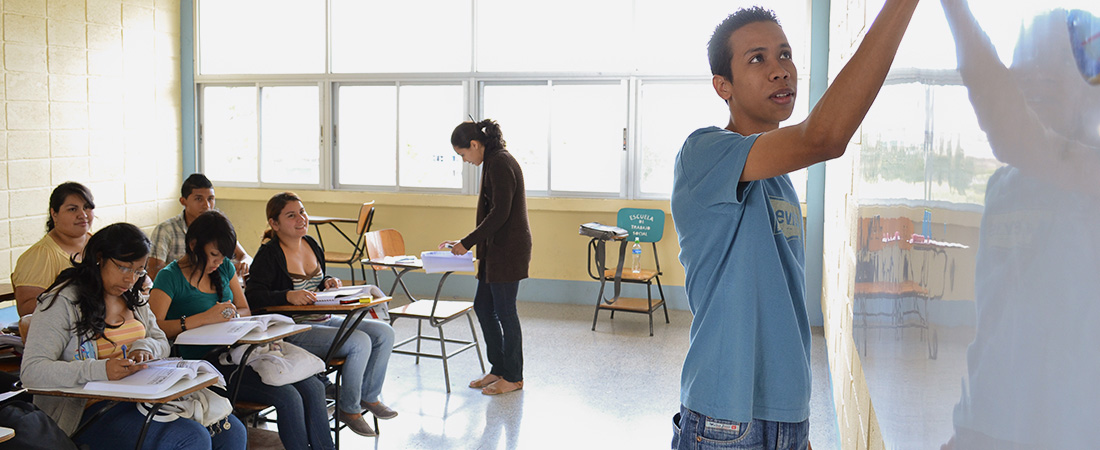Giving Students a New Chance at Success

For many students in Honduras, it’s three strikes and you’re out—literally.
Students who aspire to enter the National Autonomous University of Honduras (UNAH), one of the major institutions of higher education in Honduras, have three chances to pass the admissions exam. Pass the test, and you are in; fail the test three times, and you are locked out of an affordable university education.
But a novel collaboration between EDC and UNAH is opening doors to many students who have struggled to pass the admissions test. The Improving Education for Work, Learning, and Success project (or Proyecto METAS, as it is known in Spanish) is linking these students with peer facilitators at the university through a basic labor competencies course.
Proyecto METAS recruits UNAH applicants who have already failed the admissions exam multiple times. Participants then take a rigorous course, facilitated by UNAH students, where they study applied mathematics and learn how to read informational texts. Students who are still eligible to take the admissions test can use this new knowledge as they sit it for a third time. And even students who have already exhausted all their chances are benefiting, as METAS is teaching them valuable labor skills in a country that sorely needs trained workers.
By teaching career skills, METAS is helping to close the gap between what students are learning in school and the labor skills that are demanded by employers. “We recently conducted a survey among employers in Honduras, asking whether young people are prepared for work,” says EDC’s Gustavo Payan. “And the answer, basically, was ‘no.’ METAS is helping respond to that need.”
Payan and the METAS team have been working to implement this training program for the past year. He sees the project’s use of peer facilitators as unique among adult education programs in Honduras, which often rely on a lecture format. “Learners are more inspired because facilitators speak their language,” he says. “The facilitators quickly become role models.”
Equally important, says Payan, is that the facilitators encourage active learning, which is central to the program. An active learning model builds critical thinking skills through self-study and conversations with peers—much different than the standard format of most young adult education courses in Honduras.
Right now, there are more than 80 youth participating in the peer-facilitated programs, as the model is being pilot tested. Payan thinks METAS has been a success so far, but that its real value extends beyond the classroom.
“The project is about putting the welfare of Honduran youth on the map with local and international stakeholders,” he says. “But it is also about teaching young people positive behaviors and encouraging optimism and self-confidence. Investing in youth will yield a more peaceful environment, where young people have learning and livelihood opportunities.”